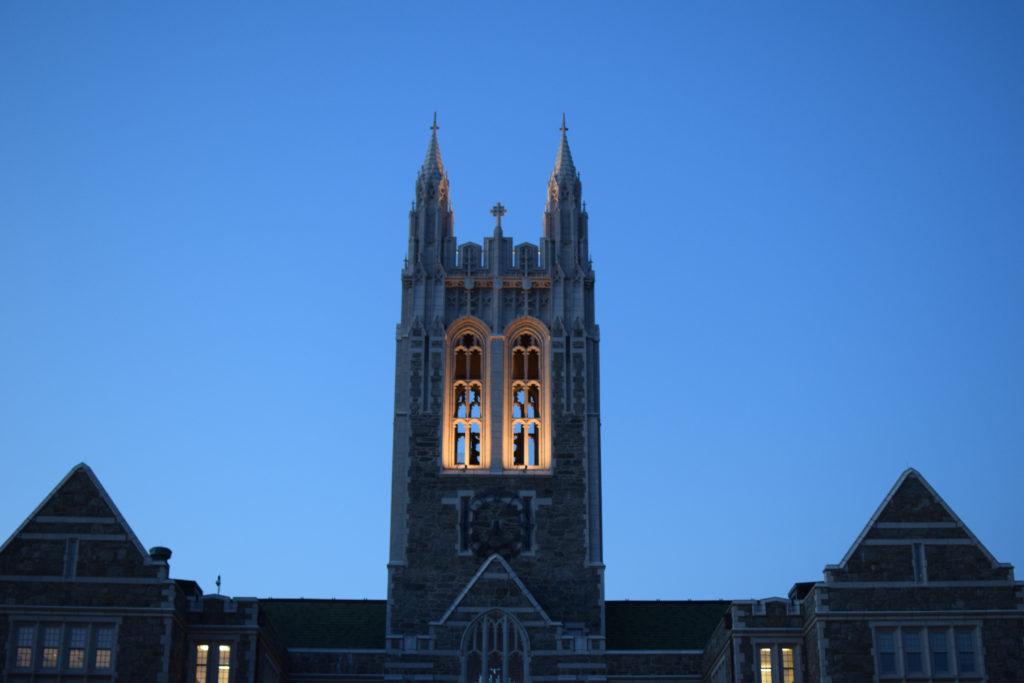Boston College responded Thursday night to the Graduate Employees Union’s continuing to ask the University to enter voluntarily into bargaining.
“The United Auto Workers’ (UAW) withdrawal of its petition to the [National Labor Relations Board (NLRB)] means that the UAW is no longer the exclusive bargaining agent for graduate students at Boston College and there is no action pending before the NLRB,” Vice President for Human Resources David Trainor said in an email. “Because of this decision, the election held in September is moot. As a result, there is no legal basis to require the University to grant the graduate students’ request to bargain and, given our firm position on the matter, no intention on the University’s behalf to do so voluntarily. The decision to abandon the formal recognition process and seek voluntary recognition is nothing more than an attempt on the part of the UAW to gain what they were concerned they could not achieve legally.
“It is important to note that there was never overwhelming support for this unionization effort among graduate students. The now moot election resulted in approximately 1/3 of the eligible graduate students voting in favor of the union, 1/3 (although 46 fewer than the votes in favor) voting against the union, and 1/3 of graduate students not voting at all.”
In the past few months, the union has garnered further support through other petitions it has gained signatures on, as well as issuing an online form this week asking for the support of undergraduate students and faculty members. Those petitions do not obligate BC to consider recognizing the union and the University has not changed its stance since those petitions began.
“In addition, contrary to what union advocates have suggested, the University provides significant support and benefits to its graduate students,” Trainor wrote. “Graduate research and teaching assistants are provided with tax-free tuition and generous annual stipends. Doctoral research and teaching assistants receive free healthcare—a benefit that exceeds that offered to BC employees, who pay up to 25% of the premium cost of their insurance. Similar to BC employees, doctoral research and teaching assistants may also elect optional dental coverage at their cost.”
The union has pushed back against this argument in the past, but the University has remained steadfast in its argument, mentioned in previous letters sent out by BC to the community, that these benefits are enough support for its graduate students. Trainor closed his statement with a reiteration of the foundational arguments behind BC’s unwillingness to recognize the union.
“As we have stated from the beginning, the University believes that graduate student unionization in any form undermines the longstanding collegial mentoring relationship experience between student and faculty that is a cornerstone of this academic community. We will continue to uphold this fundamentally educational relationship, which we believe is in the mutual best interest of our students and faculty.”
Correction (2/23/17, 8:44 a.m.): When originally published, this article attributed the emailed statement from Boston College to University Spokesman Jack Dunn. The statement was from Vice President for Human Resources David Trainor, and the article has been altered to reflect that.
Featured Image by Katie Genirs / Asst. Photo Editor



















